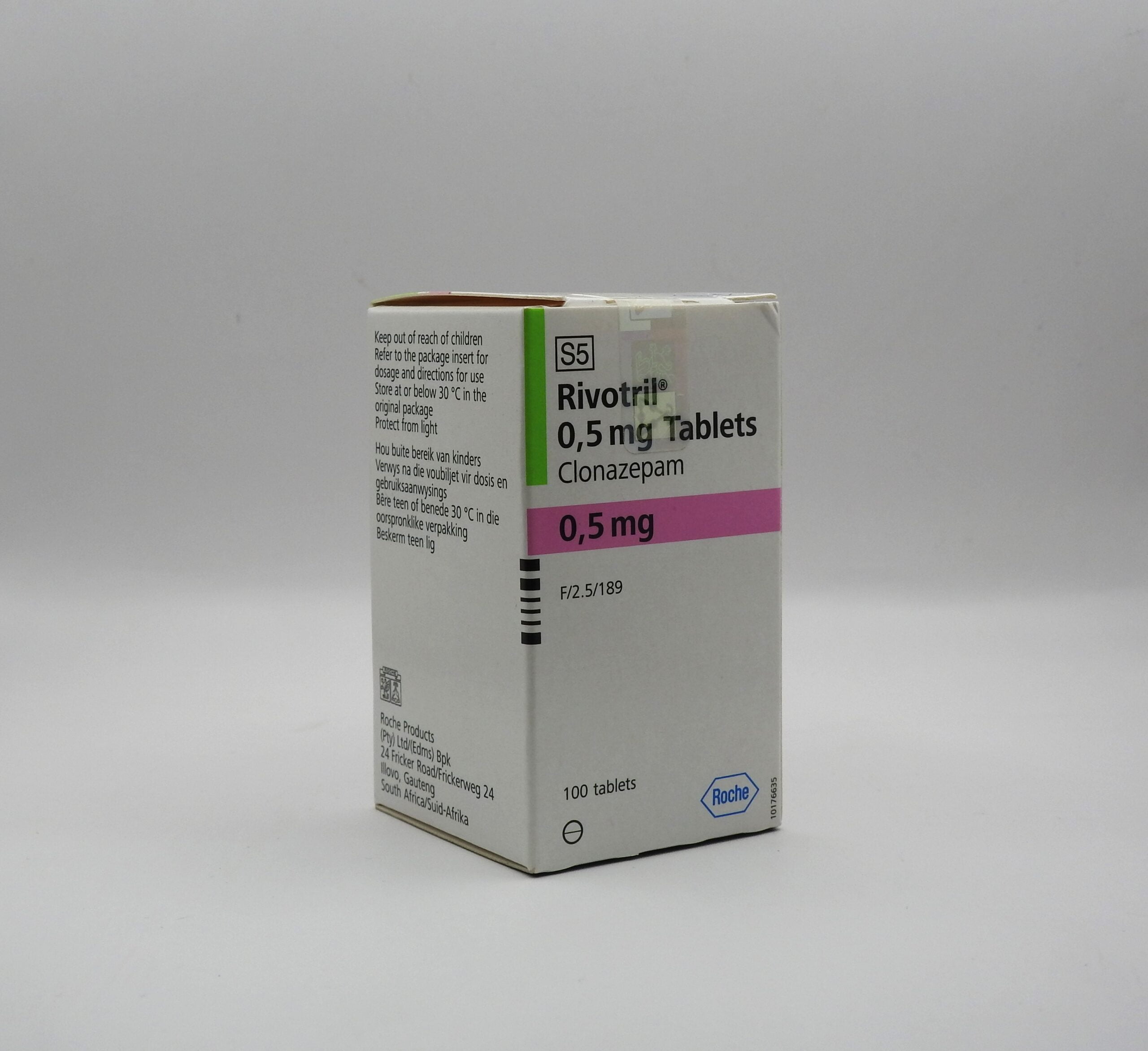Rivotril (0.5mg tablet x 100)
$58.22
Rivotril is a brand name for the medication clonazepam, which is available in tablet form. It belongs to a class of drugs called benzodiazepines and is used to treat various conditions, including anxiety, seizures, and panic disorder. Clonazepam works by enhancing the activity of a neurotransmitter called GABA, which helps to calm the nerves and reduce anxiety. This medication is available only with a prescription from a healthcare provider, and it is important to take it exactly as directed to avoid potential side effects and risks of dependence or addiction.
Rivotril is a brand name for the medication clonazepam, which belongs to a class of drugs called benzodiazepines. It is commonly prescribed to treat anxiety disorders, panic disorders, and seizures.
Dosage:
The dosage of Rivotril can vary depending on the individual’s condition and response to the medication. The usual starting dose for anxiety disorders is 0.25mg twice a day, and it can be gradually increased to a maximum daily dose of 4mg. For seizures, the usual starting dose is 0.5mg three times a day, and it can be gradually increased to a maximum daily dose of 20mg.
Usage:
Rivotril is usually taken orally, with or without food. The tablets should be swallowed whole with a glass of water, and not crushed, chewed, or broken. The medication should be taken at the same time(s) each day to maintain a consistent level of the drug in the body.
Rivotril is primarily used to treat anxiety disorders, panic disorders, and seizures. It works by enhancing the effects of a neurotransmitter in the brain called GABA, which has a calming effect on the central nervous system. This helps to reduce anxiety, prevent seizures, and induce relaxation.
It is important to follow the healthcare provider’s instructions carefully when taking Rivotril. Abruptly stopping the medication can cause withdrawal symptoms, such as tremors, muscle cramps, and seizures. The medication should be tapered off slowly under the guidance of a healthcare provider.
Rivotril can cause side effects, such as drowsiness, dizziness, and loss of coordination, which can impair the ability to operate machinery or drive a car. It can also be habit-forming and should be used with caution in individuals with a history of drug or alcohol abuse.
Overall, Rivotril is a potent medication that can be effective in treating anxiety disorders, panic disorders, and seizures. It should be taken as prescribed, and individuals should follow up with their healthcare provider regularly to ensure the medication is still appropriate for their condition.
| Weight | 0.06 kg |
|---|---|
| Dimensions | 3 × 3 × 1 cm |
Related products
Nurika (150mg capsule) is a brand name for the generic drug pregabalin. It is a prescription medication used to treat a variety of conditions, including:
- Neuropathic pain caused by nerve damage from diabetes, shingles, or spinal cord injury
- Fibromyalgia (chronic pain all over the body)
- Partial onset seizures in adults
Pregabalin is thought to work by reducing the activity of certain chemicals in the brain that play a role in pain and seizures.
Nurika (150mg capsule) is taken by mouth, usually two or three times a day. The dosage will vary depending on the condition being treated and the individual's response to the medication.
Common side effects of Nurika (150mg capsule) include dizziness, drowsiness, blurred vision, dry mouth, and weight gain. More serious side effects can occur, such as allergic reactions, suicidal thoughts, and seizures.
Nurika (150mg capsule) should not be taken by people who are allergic to pregabalin or other anticonvulsant medications. It should also not be taken by people with kidney problems or a history of drug or alcohol abuse.
It is important to talk to your doctor before taking Nurika (150mg capsule) to discuss the risks and benefits of the medication.




